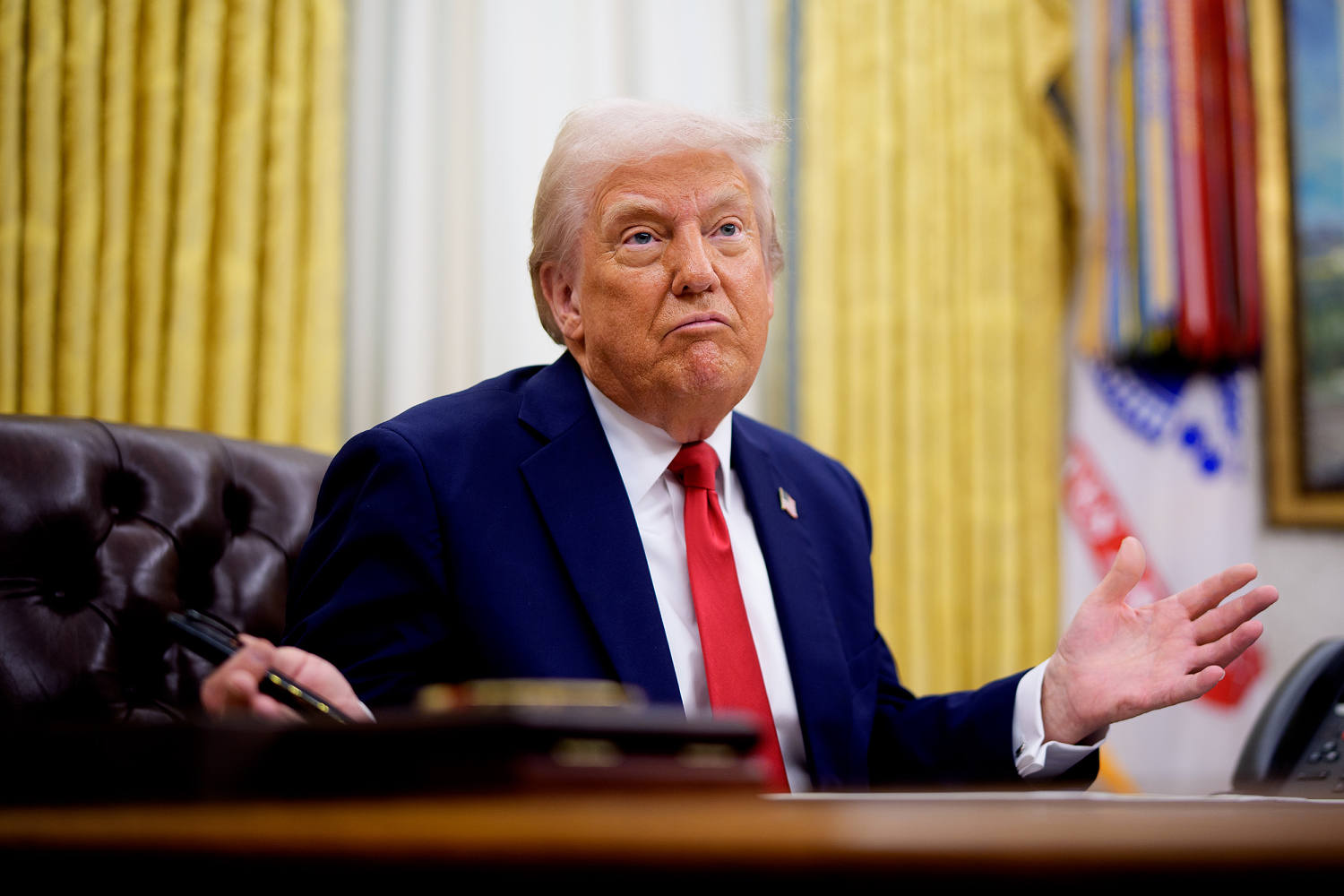
There’s already an important international controversy surrounding Donald Trump sending inmates to the CECOT prison in El Salvador without due process, but this week, the larger issue took an unexpected turn: Multiple reports indicated that the president’s administration is also planning to expand its deportations to Libya.
The reaction was swift. Officials in Libya quickly made clear that they haven’t agreed to any such deal with the White House; critics of the idea wasted little time in arguing that such a move would be illegal; and a federal judge warned the administration that it cannot deport immigrants to Libya without due process.
It was against this backdrop that Trump was asked a straightforward question about the story. The New Republic noted:
Donald Trump says he doesn’t know whether he plans to deport hundreds of immigrants to Libya, amidst reports that his administration will do so as soon as Wednesday. “Is the administration sending migrants to Libya?” Trump was asked during a press conference Wednesday afternoon. “I don’t know,” he responded. “You’ll have to ask the Department of Homeland Security.”
While it was certainly possible that the president was simply lying about what he knew, at face value, it appeared that the Republican was simply unaware of what his own administration was up to.
If it seems as if this has been happening a lot lately, it’s not your imagination. Consider some of what we’ve heard from the president just this week.
On Sunday, for example, NBC News aired Trump’s latest appearance on “Meet the Press.” When host Kristen Welker asked whether everyone in the United States is entitled to due process, the president replied, “I don’t know. I’m not, I’m not a lawyer. I don’t know.” When Welker reminded her guest about the Fifth Amendment, Trump again said, “I don’t know.”
As part of the same exchange, Welker went on to say, “[D]on’t you need to uphold the Constitution of the United States as president?” Once again, Trump answered, “I don’t know.”
As the interview continued, the host asked whether anyone in his administration is in contact with El Salvador about returning Kilmar Abrego Garcia to the United States. “I don’t know,” the president said. “You’d have to ask the attorney general that question.
On Tuesday, during a White House meeting with members of the World Cup task force, a reporter asked Trump about Russia having been banned from competing in next year’s FIFA World Cup tournament. “I didn’t know that. Is that right?” Trump responded.
A day later, fielding questions in the Oval Office, Trump was asked whether he agreed with Treasury Secretary Scott Bessent’s comments about possible tariff exemptions for certain family consumer goods. “I don’t know, I’ll think about it,” the president said. “I don’t know. I really don’t.”
Around the same time, a reporter reminded Trump that JD Vance said that Russia was asking too much to end the war in Ukraine. “When did he say that?” the president asked. Reminded that the vice president had made the comments just hours earlier, Trump added, “Well, it’s possible that’s right. He may know some things.”
In case that weren’t quite enough, at the same Q&A, Trump also said he had no idea that Republican Sen. Thom Tillis of North Carolina had announced his opposition to Ed Martin’s U.S. attorney nomination a day earlier.
These weren’t trick questions. No one appeared to be trying to trip the president up with unexpected inquiries about obscure topics. In all of these instances, Trump should’ve been able to respond to the questions with substantive responses.
But he didn’t. Instead, the Republican effectively said, over and over again, “Don’t look at me; I just work here.”
As for why this matters, there are a handful of angles to keep in mind. Right off the bat, there have been a great many instances in recent months in which Trump has transformed into President Bystander, sounding too much like a man who just wandered into the Oval Office.
What’s more, most objective observers would probably agree that if Joe Biden repeatedly said, “I don’t know” in response to simple questions about his own administration, it would be front-page news — and the Democrat’s responses would be played on a loop, for hours on end, in conservative media.
Similarly, Trump has personally invested considerable time and energy into accusing Biden of being a doddering old “autopen” president who was unaware of events unfolding around him. Given the frequency with which the Republican clings to “I don’t know” responses, he might need a new line of attack.
Finally, let’s not overlook the fact that Trump’s authoritarian-style tendencies are rooted, at least in part, in the idea governmental power must be concentrated and put in his hands, to be executed as he sees fit.
It makes the president’s apparent cluelessness that much more alarming.
This post updates our related earlier coverage.
